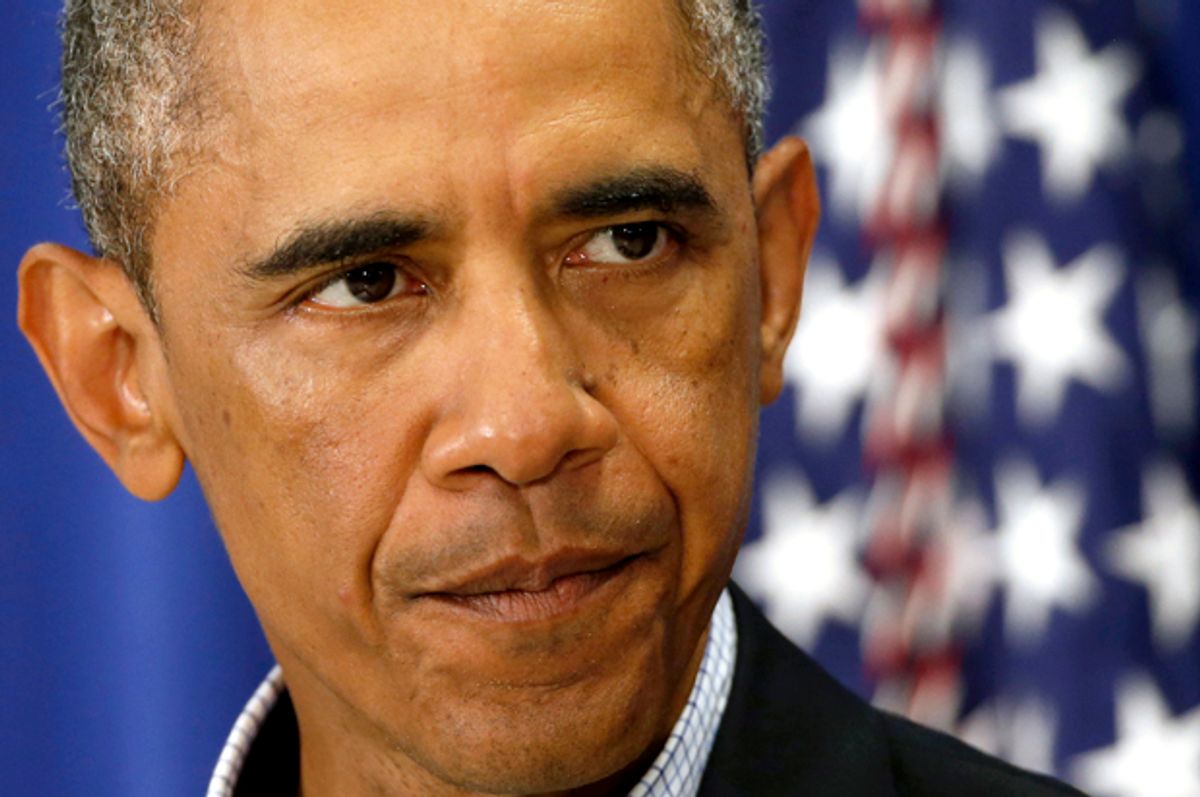President Barack Obama delivered an odd and ungainly speech Wednesday night, one that briskly laid out his case for using U.S. bombs, intelligence, allies and probably money to "degrade and destroy" ISIS (or "ISIL," as he insists on calling it).
Until we see some polling, I couldn't tell you whether Obama's speech accomplished its primary goal — assuring low-information voters that, despite what they vaguely recall hearing on "Good Morning America" while drinking their morning coffee, the world isn't completely falling apart. But what I can tell you is that I was glad Obama avoided referring to ISIS as an "existential" threat, as D.C. hawks are increasingly wont to do, and that I was deeply annoyed and disappointed to hear him promote military action without Congressional authorization all the same.
Oh, and I can tell you that #tcot spent what at least felt like the entirety of Obama's speech fuming over his dogged refusal to describe the conflict with ISIS as a grand clash of civilizations between the West and Islam itself. Indeed, while some of the smarter right-wing pundits noted the clear political calculation behind Obama's insistence that ISIS is not a true representative of Islam, most of #tcot's response looked something like this:
[embedtweet id="509869945354977280"]
[embedtweet id="509870281750368256"]
[embedtweet id="509870250037608448"]
[embedtweet id="509870117195640833"]
[embedtweet id="509872885822156800"]
The other thing I could tell you — and this flows naturally from the first, and will likely strike you as similarly unsurprising — is that #tcot found Obama's insistence that he would not allow U.S. troops to be redeployed to Iraq in significant numbers (and pay no attention to the 475 men behind that curtain, please) to be risible and weak. And the argument here was similarly premised off of a cartoonish view of radical Islam, one in which it is the supervillain to America's superhero, and could not be allowed to know a democracy's plans in advance:
[embedtweet id="509872048660029440"]
[embedtweet id="509871970650169344"]
[embedtweet id="509872339115573248"]
[embedtweet id="509872138652639232"]
[embedtweet id="509871982175719426"]
Put it all together, and you've got a pretty decent a snapshot of the bizarre politics of national security in America today.
On the left, there's a small group of people who are pulling their hair out, exasperated at the prospect that the U.S. may be once again drawn into a military commitment in the Middle East it's not ready to make and can't possibly uphold. These are often the same people who opposed invading Iraq in the first place. They are usually ignored — and if history vindicates them once more, they'll no doubt be told they were still right for the wrong reasons.
And on the right, you have #tcot, so fired-up at the prospect of an apocalyptic struggle with pure evil, and so unwilling to accept the idea that there are problems American bombs cannot solve. For them, the biggest issue tonight was that President Obama — who has approved drone strikes in Afghanistan, Pakistan, Somalia, Yemen, Iraq and, soon, Syria — is not talking enough about fighting Islam.

Shares